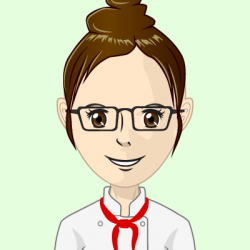Eating disorders - Tips
Tips for coping with eating disorders
Would you like some tips and advice how to deal with an eating disorder?
This forum is a great place to explore several tips.
Looking for more support?
Search a counsellor by region >>
Overview of tips
All tips
Tip 1 - Address yourself with your first name in challenging situations
When we deal with strong emotions, it helps to take a step back and look at ourselves from a distance.
We are much smarter when we give other people advice and that intelligence we also get when we keep a wide view in challenging situations and address ourselves with our first name.
The idea that a less egocentric perspective subdues negative emotions, is being supported by brain research. The emotional center in the brain - the amygdala - becomes less active when we don't talk in the first person to ourselves.
Moreover it helps to take a distance to yourself to increase your self-control. (Mary, you can leave that chocolate alone)
Tip 2 - Investigate the secondary gain of having an eating disorder
Investigate the secondary gain of having an eating disorder. Even when you want to let go of it, it can be that you do not succeed, because (unconsciously) you benefit from having the eating disorder. This is called 'secondary gain'.
- It can be, for example, that because of your eating disorder, you do not have to do certain things that you do not want to do.
- Or because of your eating disorder you receive extra attention from your parents, lovers or therapists. And that you actually like that.
As soon as you know what the positive effects of your eating disorder is (the secondary gain), you can start to look for an alternative way to get the same advantage, without having to hold on to the eating disorder.
The next questions can help you discover the advantage of your eating disorder:
- What (nice things) can I do because of the eating disorder, what I otherwise could not do?
- What (nice things) do I receive because of the eating disorder, that I would otherwise not receive?
- What could go wrong when I do not have the eating disorder anymore?
Tip 3 - Practice mindfulness
Watch with a mild, soft and friendly attention to your eating disorder.
Accept the eating disorder, without identifying with it. You are not the eating disorder, you have it.
By approaching yourself and your eating disorder in a gentle way, you can relax deeper and then your the eating disorder can become soft too.
Tip 4 - Find a counsellor
Do you suffer from an eating disorder and could you use some support?
A therapist or counsellor can help you.
Tip 5 - Don't be afraid to reach out for support
Reaching out to others for support does not show weakness but great strength! To admit that you need help can be challenging but trying to heal your relationship with food and your body without support.....that's incredibly difficult and lonely.
Reach out today, to a friend, to a loved one, to a counsellor or therapist, to a coach......the journey to recovery IS difficult but so worth it!
Tip 6 - Journaling for recovery....
Write down the intrusive thought and then look at it with curiousity....what could you say back?
Imagine it's a friend sharing the thought with you or a loved one....what would you say to them if they told you they felt they needed to engage in something harmful to themselves....now whatever you may say to that friend or loved one....try to say to yourself, compassion is key in recovery and you deserve the kindness you would offer others.
Journaling also helps to get the thoughts out of your head and make space. It can get crowded with intrusive thoughts and they can become so overwhelming if not attended to....be kind to yourself.
Add your own tip

Click the name of a town to see which counsellors / therapists are available.
- Ashburton
- Auckland
- Blenheim
- Cambridge
- Christchurch
- Dunedin
- Ellerslie
- Epsom
- Gisborne
- Hamilton
- Hastings
- Hibiscus Coast
- Invercargill
- Kapiti Coast
- Lower Hutt
- Masterton
- Motueka
- Mount Maunganui
- Napier
- Nelson
- New Plymouth
- North Shore
- Orewa
- Palmerston North
- Papamoa
- Paraparaumu
- Porirua
- Queenstown
- Richmond
- Rotorua
- Tauranga
- Upper Hutt
- Wanaka
- Wellington
- West Auckland
- Whangaparaoa
- Wanganui
- Whangarei
Is your town not in the list above? Search on town >>
- ✓ 100+ Counsellors
- ✓ In New Zealand
- ✓ Face-to-face & Online

